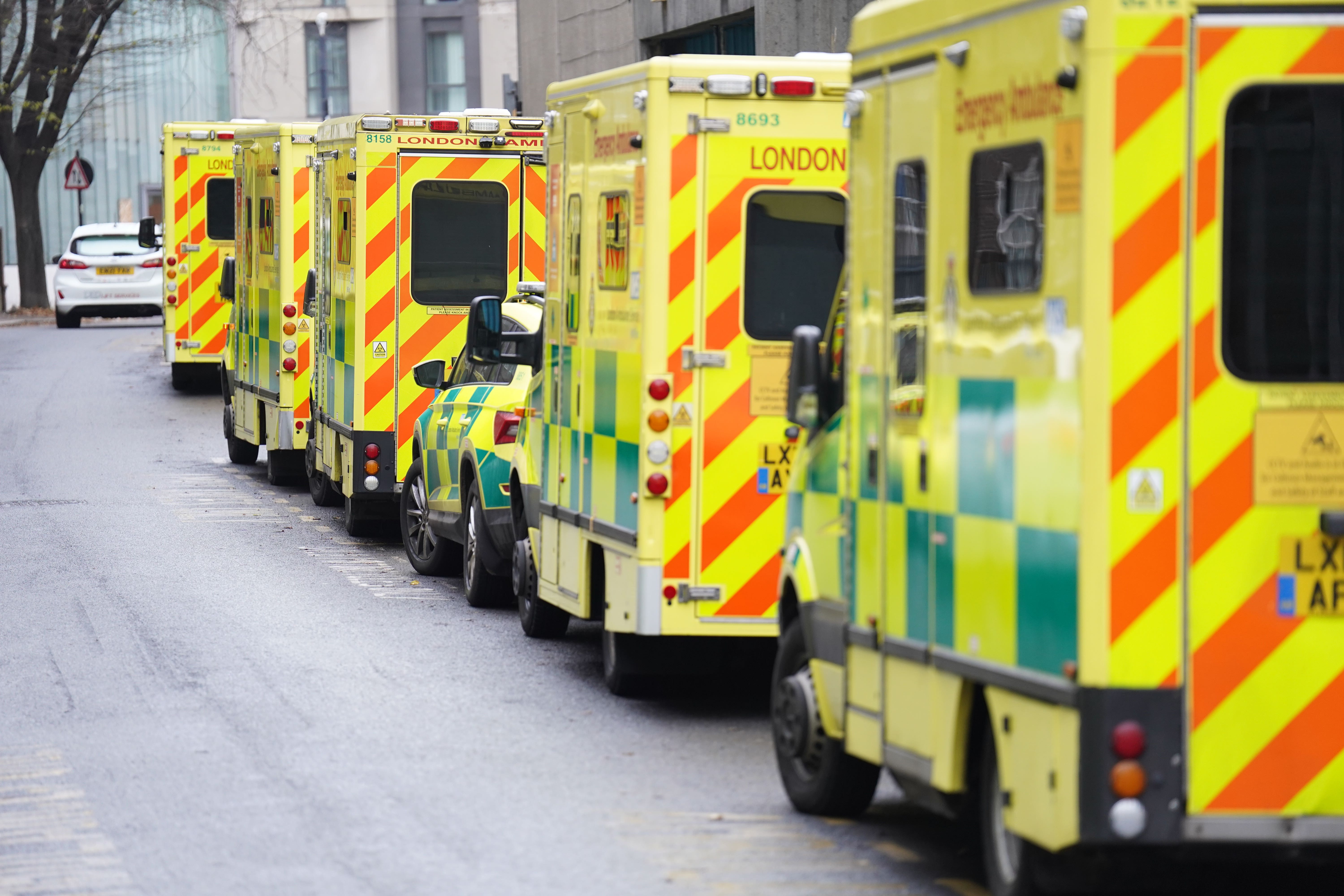Some ambulance callers to be told to visit urgent clinic or GP instead
NHS England expects ambulance services to move to the new system in the next couple of weeks.

Your support helps us to tell the story
From reproductive rights to climate change to Big Tech, The Independent is on the ground when the story is developing. Whether it's investigating the financials of Elon Musk's pro-Trump PAC or producing our latest documentary, 'The A Word', which shines a light on the American women fighting for reproductive rights, we know how important it is to parse out the facts from the messaging.
At such a critical moment in US history, we need reporters on the ground. Your donation allows us to keep sending journalists to speak to both sides of the story.
The Independent is trusted by Americans across the entire political spectrum. And unlike many other quality news outlets, we choose not to lock Americans out of our reporting and analysis with paywalls. We believe quality journalism should be available to everyone, paid for by those who can afford it.
Your support makes all the difference.Successful trials of a new method of screening ambulance calls will see England’s public told to seek alternative treatment unless their condition is life-threatening.
The BBC reported that NHS England wants calls reviewed so those concerning non-life-threatening conditions – referred to under category two, which includes emergencies such as heart attacks and strokes but also burns and severe headaches – are referred instead to an urgent treatment clinic, a GP or a pharmacist.
Some 40% of calls classed as category two will now receive callbacks from a doctor, nurse or paramedic to investigate the possibility of an ambulance alternative.
Nearly half of those who received callbacks in trials in London and the West Midlands were advised to seek alternative treatment to an ambulance, prompting NHS England to ask the country’s eight other ambulance services to adopt the approach.
Ambulance trusts across the country are struggling to respond to 999 calls on time, with delays handing patients to A&E playing a major role.
Professor Julian Redhead, NHS England national clinical director for urgent and emergency care, said: “This new system will allow a conversation between a nurse and paramedic or a doctor and the patient – and between them, they’ll be able to decide whether an ambulance is the best response or whether no ambulance is required and they’re better cared for in a different environment.
“It’s really important that people know it doesn’t mean anyone loses their place in the queue (while they are assessed).
“What it does is provide more individualised care for a patient but also allows us to free up the resource for our most vulnerable patients, patients who will have had strokes and heart attacks.”
NHS England expects ambulance services to move to the new system in the next couple of weeks, with it kept under review during its initial months.
It comes as ambulance workers in England continue industrial action in the long-running dispute over pay and staffing, with no sign of a breakthrough in the increasingly bitter row.
About 15,000 members of Unison in five areas walked out last Friday, with officials warning of escalating action in the coming weeks unless the deadlock is broken.
Later on Friday, Unite said more than 1,000 workers employed by the South Central, South East Coast and Yorkshire ambulance services had voted to join the NHS strikes.
The frontline workers will join around 2,800 colleagues in the West Midlands, East Midlands, North West, North East and Wales already striking over pay.
Subscribe to Independent Premium to bookmark this article
Want to bookmark your favourite articles and stories to read or reference later? Start your Independent Premium subscription today.